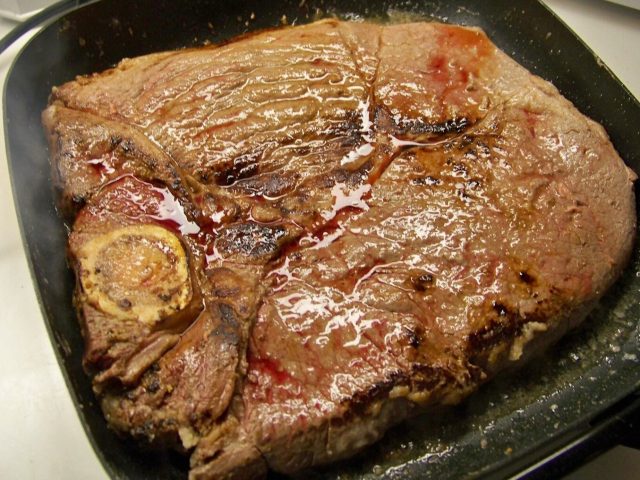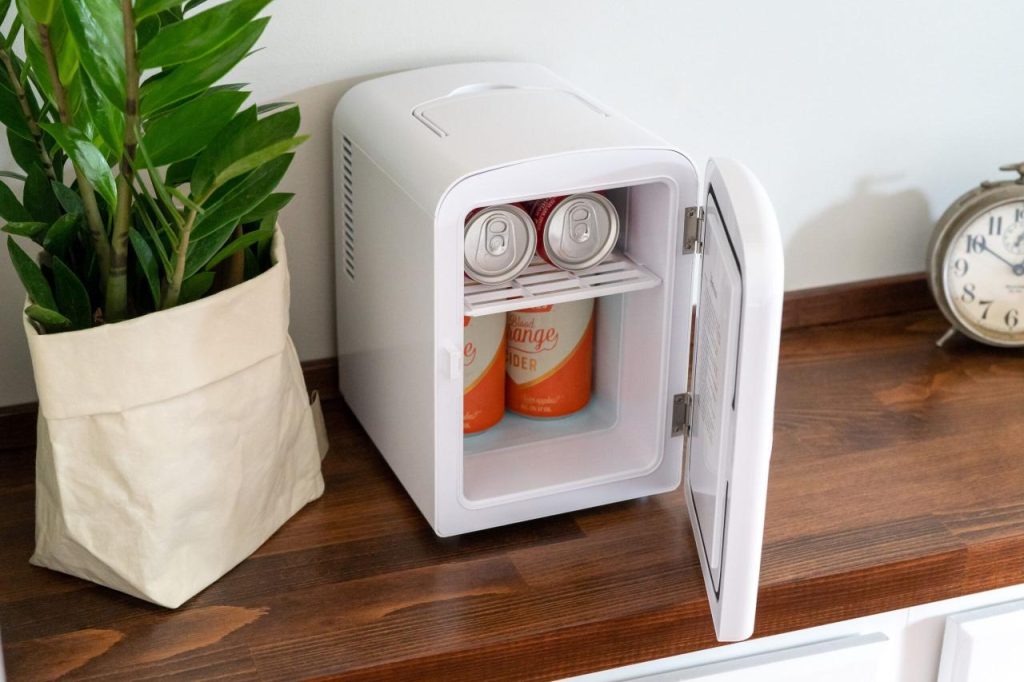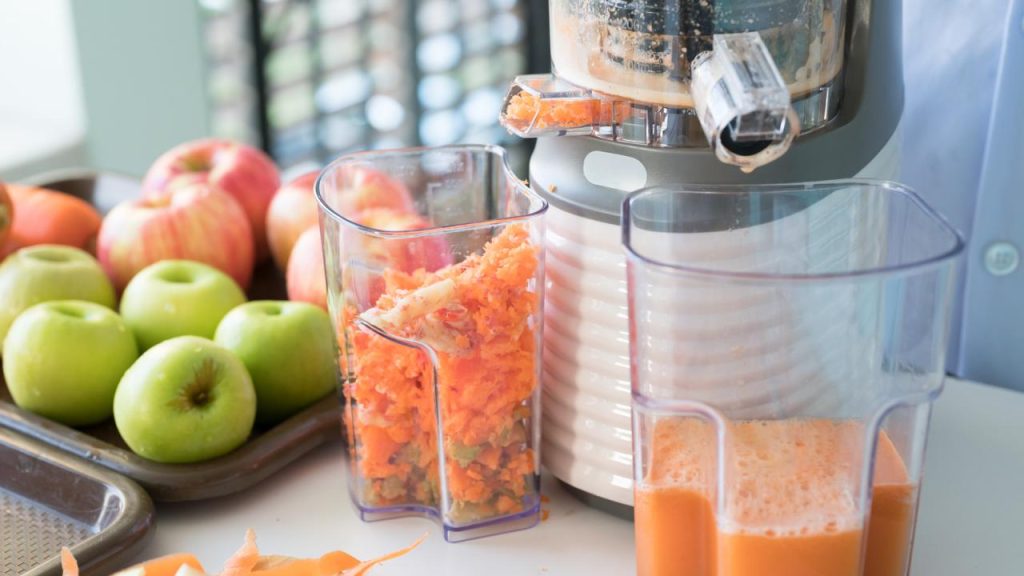In the vast landscape of kitchen appliances, the operational capabilities of mini fridges have prompted inquiries regarding their efficacy in maintaining food at optimal temperatures. So, can mini fridges sufficiently keep food cold?
This query holds substantial importance for those in search of practical storage solutions in confined spaces, as the ability of these compact cooling units to effectively preserve perishable items is a critical consideration. By scrutinizing the cooling mechanisms and design features inherent in mini fridges, Cook Eat Delicious can delve into a comprehensive exploration to ascertain their capacity to keep food suitably chilled.

Purpose and Capacity of a Mini Fridge
A mini fridge stands as a compact cooling appliance, offering unparalleled convenience and space-saving benefits. Ideal for small living spaces like apartments, dorm rooms, and offices, or for individuals desiring quick access to their preferred beverages and snacks, the mini fridge is a versatile addition.
Distinguished by its reduced size in comparison to standard refrigerators, the mini fridge serves a multitude of purposes and presents unique advantages. Tailored for compact spaces such as dorm rooms, offices, or small apartments, it acts as a practical storage solution for beverages, snacks, and modest food items.
Beyond its conventional uses, the mini fridge’s portability and space-efficient design make it adaptable for diverse settings, including recreational vehicles, camping excursions, or as supplementary storage for specific items like cosmetics, medications, or skincare products.
While not intended for extensive food storage or prolonged preservation of perishable items, the mini fridge excels in providing an efficient solution for keeping essentials cool and easily accessible in confined spaces. It brings flexibility and convenience to various lifestyle needs, showcasing its versatility and utility.

Do mini fridges keep food cold enough?
Mini fridges are typically engineered to uphold a sufficiently cool temperature to preserve perishable items. However, the effectiveness of their cooling capacity can vary based on the specific model and brand.
While most mini fridges are proficient at chilling beverages, snacks, and select food items, they may not match the consistent low-temperature maintenance of full-sized refrigerators. Consequently, it becomes crucial to factor in the intended use and storage requirements when opting for a mini fridge.
To ensure optimal performance, it is recommended to refrain from overpacking the fridge, maintain proper air circulation, and routinely monitor the temperature settings. Additionally, placing the mini fridge in a well-ventilated area, away from direct sunlight, plays a role in enhancing its overall cooling efficiency. These considerations contribute to maximizing the utility of mini fridges while keeping items appropriately chilled.
What Foods Can Go In A Mini Fridge?
Storing food in your mini fridge is a straightforward process: if it fits inside, it can go in the refrigerator.
A variety of items, including soda, beer, yogurt, eggs, butter, lunch meat, vegetables, milk, wine, and ice cream, can all find a place in a mini fridge. Frozen goods, if your mini fridge is equipped with a freezer section, should be kept below freezing.
Mini fridges often serve as convenient backup refrigerators in homes. They excel at chilling wine and maintaining the cold temperature of numerous beer cans or bottles. For optimal beer storage, a temperature of 40°F is generally recommended in a mini fridge.
There’s typically no need to worry about storing additional food in your tiny fridge. However, it’s worth noting that while some mini fridges feature a freezer compartment for freezing food, not all of them include this option.

Optimizing Space in a Mini Fridge
Effective storage in a mini fridge requires strategic space optimization. This entails thoughtful arrangement, utilizing small containers, and limiting items to those that will be consumed within a short timeframe.
- Dairy Products: Cheese, butter, and milk are suitable for mini fridges as they don’t take up much space and benefit from refrigeration to maintain their quality.
- Beverages: Mini fridges excel at storing drinks, accommodating a variety of beverages such as water, juice, soda, and beer.
- Condiments: Most condiments have a long shelf life when refrigerated. Ketchup, mustard, mayonnaise, and pickles are examples of condiments that can be stored in a mini fridge.
- Fruits and Vegetables: If your mini fridge includes a crisper drawer, you can store a modest amount of fruits and vegetables. Opt for those you consume regularly to prevent spoilage due to limited space.
Foods to Avoid Storing in a Mini Fridge
While a mini fridge is a convenient appliance, not all foods are suitable for storage in such a confined space. Here are some foods to avoid:
- Large or Bulky Items: Whole turkeys or large watermelons, due to their size, are impractical for a mini fridge.
- Perishable Foods: Items with a short shelf life should be avoided unless you plan to consume them within a few days. The variable temperatures in mini fridges may not be ideal for highly perishable items.
- Frozen Foods: Most mini fridges lack a separate freezer compartment or have a very small one, making them unsuitable for storing frozen foods like ice cream or large bags of frozen vegetables.
Maximizing the Efficiency of a Mini Fridge
Even with limited space, you can make the most out of your mini fridge with these tips:
- Regular Cleaning and Organization: Regular cleaning helps prevent odors and bacterial growth. Organize your food logically, placing frequently used items in front and less commonly used items in the back.
- Proper Temperature Setting: Ensure your mini fridge is set to the correct temperature, typically around 37°F (3°C). This prevents spoilage and keeps your food fresh.
In conclusion, while a mini fridge has its limitations, it can be incredibly useful when used appropriately. With careful selection and organization of foods, it can effectively maintain the freshness and quality of certain items, providing a valuable tool for those seeking a compact refrigeration solution.







